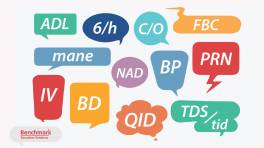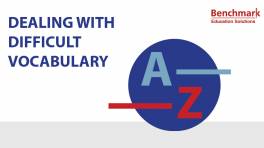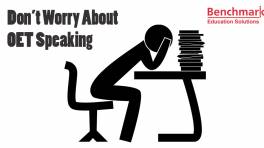Maximise OET Vocabulary with Exam Words List and Tips


Do you want to make your OET vocabulary work better for you? Do you feel like you get a grasp of the vocabulary only to feel it slipping away again? Vocabulary is the core of learning a new language. When it comes to professional language learning especially for doctors ,nurses and Pharmacy getting that specific language use just right can be challenging. Read on for a teacher’s take on how to achieve that vocabulary breakthrough you have been waiting for and ace your OET writing sub-test and OET speaking sub-test!
Table of Contents
1. Vocabulary is the Key to Your Success in the OET Test
Any teacher will tell you that the power of vocabulary cannot be underestimated. In every English class, there will be a major focus on vocabulary as we know that language is meaning and vice-versa. The more vocabulary we have at our disposal, the better equipped we are to convey the exact meaning that we are after. Is there anything more frustrating than knowing what you want to say but not quite having the words to express yourself? More specifically, in the medical world, knowing the difference between someone being in agony or just a bit sore or feeling sleepy or exhausted is crucial. Therefore, appropriate vocabulary in OET subtests is utmost important in achieving high scores in your OET exam.
2. Learning 2 Sets of OET Vocabulary
The vocabulary that you will use with patients will, of course, be different from the vocabulary that you use to converse with other healthcare professionals such as doctors and nurses. So, if it wasn’t difficult enough, you almost have to learn two new languages! Don’t worry, this is not nearly as hard as it sounds once you get the hang of it. You just need to use the right tone and style for the purpose. For example, imagine saying to a patient’s wife that her husband has been experiencing epigastric pain radiating to the right side with no hematemesis noted, suggestive of cholelithiasis. Obviously, she would not have a clue what you were talking about! She might need to know that her husband has had some problems with his gallstones and be reassured that there is no risk of cancer. A good healthcare professional knows when to use each type of language and can switch between them effortlessly.
3. Getting Your Vocabulary Right For the Assessors
OET assessors lookout for appropriate and concise use of vocabulary. In OET speaking subtest and writing subtest, assessors are not interested in flowery language, exciting adjectives and alliterative phrases…you are not writing a novel or your autobiography! They want to see those verbs in the past perfect, the use of the passive voice, that the patient presented with, was commenced on…you get the idea. The language of healthcare professionals communicating with one another, whether that be in nursing or optometry! This is why it is so important to revise the materials that we provide and learn this language until it becomes second nature.
4. OET Vocabulary Learning
Whether you are a nurse, or doctor, pharmacist or physiotherapist, you will come across examples of patient suited language and professional language all the time in your study, training and work. However, without paying the proper attention, they can soon get lost among the huge number of new English words going around your head! You need to record these words and phrases. Write them down along with anything you notice about the use of the vocabulary. Get in the habit of also recording what type of word or phrase it is grammatically. This way you build up a more thorough understanding of the language and this helps you to use it more accurately.
For example, you can jot down the word type. is it a noun, verb, adverb or preposition that you notice? You can note the tense used. Is it more appropriate for professional vocabulary or ordinary day-to-day or patient’s vocabulary? professional vocabulary? Become familiar and comfortable with the OET vocabulary and it will do the work for you.
5. Top Tips For Developing OET Vocabulary
- Be a vocabulary detective – Both in day-to-day life and in healthcare situations, listen and learn. You will hear some words and phrases that come up time and time again. These are the ones to hang on to.
- Keep a vocabulary journal – Don’t just jot down words randomly. A really good method is writing down words and phrases in the style of a daily diary so that you remember the meaning and context.
- Reward yourself – Set yourself a target to use a certain amount of the words recorded in your journal every day with the people around you. Keep a record and give yourself a treat for your achievements!
- Don’t be shy! – The best language students are those who don’t care what other people think. If you don’t use new vocabulary regularly, you won’t retain and expand on it. So what if you get some things wrong? We all know that mistakes are the best way to learn.
- Join our OET Writing Correction service – Tutors at Benchmark Education will show you exactly what healthcare specific words you are using incorrectly and the precise term/phrase/word to write instead in your letter. They will also guide you for the correct use of OET vocabulary in Speaking practice/Mock test.













Thanks a lot Benchmark.It was really helpful.Each and everything is very much beneficial. Thanks again.
Always happy to help! Good luck with your preparation! This service might interest you: OET Writing Correction
Thanks benchmark for your help ,every day I wrote the tips for OET and I hope so I will get the score.
All the best!
Dear Benchmark Team,
it was so treating guides for the speaking.
I really appreciate your support.
regards
i want to increase my writing and speaking skills in vocabulary please help me for my upcoming OETexam
Hello benchmark team
I want to give OET exam but i have no idea about it can you please guide me and send me any sample like mock test
Thank you
Hi
Hello fellas! I really like the benchmark’s approach to teaching and preparing students for the OET and other exams! Great stuff!
Have a good day!